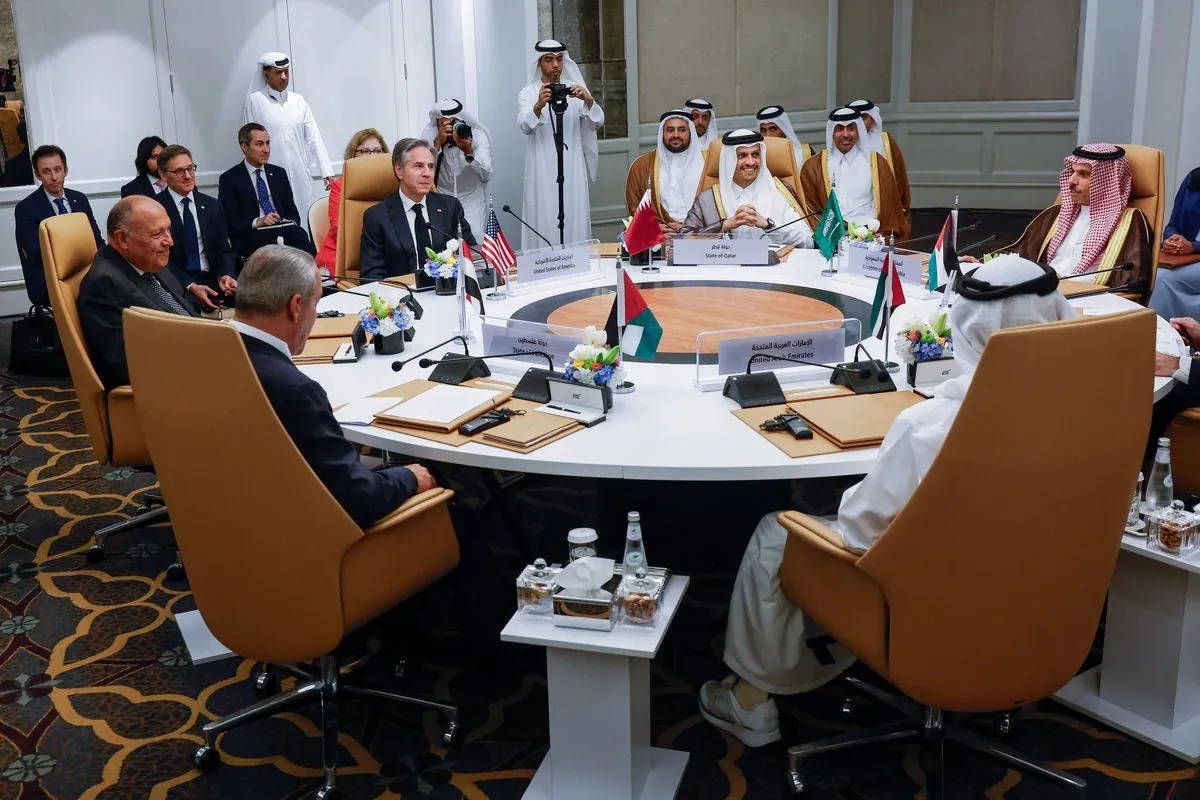Hostage Families Urge US to Devise "Plan B" for Gaza Negotiations
As US-led talks for a Gaza ceasefire and hostage release falter, families of captives call for a new strategy. The complex multi-stage deal faces challenges amid trust issues between Israel and Hamas.

Families of hostages held in Gaza are urging the United States to develop a "Plan B" for negotiations with Israel and Hamas if current talks fail to yield results. This call comes as discussions for a ceasefire and hostage release agreement face significant hurdles.
Joe Biden recently expressed optimism about the negotiations, stating they were "closer than we've ever been" to reaching a deal. However, the talks have encountered obstacles, with Hamas allegedly retreating from a US-proposed compromise.
Three relatives of hostages shared their perspectives with The Telegraph, emphasizing the need for a new approach if the current round of negotiations proves unsuccessful. They suggest an alternative strategy could involve an all-encompassing agreement with a shorter timeline for peace.

The ongoing talks focus on a multi-stage deal, which some believe is hindering progress due to a lack of trust between the parties involved. The US-backed proposal includes a limited ceasefire in the initial phase and the release of some hostages. Both Israel and Hamas have accused each other of impeding the negotiations.
Benjamin Netanyahu, Israel's prime minister, has reportedly agreed to the US "bridging proposal." However, Hamas claims Netanyahu has backtracked on his support for the plan, which may include the withdrawal of Israel Defense Forces (IDF) troops from the Philadelphi Corridor, a buffer zone between Gaza and Egypt.
Ruby Chen, whose son, a US-Israeli citizen, was killed during the October 7 attacks while serving in the IDF, advocates for a change in strategy if the current talks fail. He stated, "If you're trying to get an objective, and if after some point in time you see you're not reaching that objective, you look at the game plan and see if you're heading towards that goal."
Maya Roman, related to Israeli hostage Carmel Gat, echoed this sentiment, suggesting that if the current approach fails, a different structure might be necessary. She proposed "a different structure of a deal, one that is everything for everything. We can't do the stages thing because there's just not enough trust."
Antony Blinken, the US Secretary of State, concluded his ninth visit to the Middle East since the conflict began, emphasizing the urgency of reaching an agreement. He stated, "We need to get a ceasefire and hostage agreement over the finish line, and we need to do it now."
The negotiations are taking place against the backdrop of the upcoming US presidential election, with protests against US support for Israel occurring at the Democratic National Convention in Chicago. Kamala Harris, set to accept the party's nomination for the November election, has distanced herself from Netanyahu, reflecting the complex political dynamics surrounding the issue.
Gili Roman, brother of released hostage Yarden Roman-Gat, expressed concerns about the lack of trust in the negotiations, stating, "I think that some people in the West think of this deal as a deal between two law firms that obey the Western law. This is not the case. It's against the terrorists."
As the situation evolves, the international community watches closely, hoping for a resolution that can bring peace to the region and secure the safe return of all hostages.
"God, help me, I do hope that they do have a Plan B. Maybe it is time to look at that Plan B, if we're not able to resolve this in the next couple of days."


































